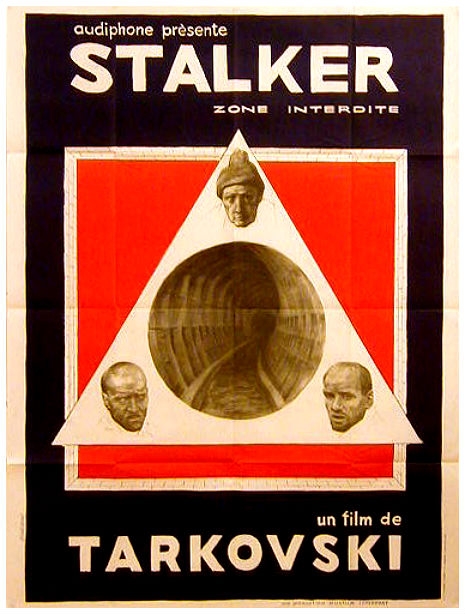
I am reading Geoff Dyer’s new book “Zona: A Book About a Film About a Journey to a Room”, a 200-plus page revery on Andrei Tarkovky’s Stalker. For many people, Tarkovsky is the kind of director that you have to make an effort to appreciate. But you do so because it is “art.” His long takes, enigmatic dialogue and refusal to follow linear narrative can be exasperating. It can also be dreamlike, hypnotic and, dare I say it, spiritual. Tarkovsky’s cinema eye focuses on the textures of images, their metaphysical heft (or lack of), the spaces between things and the sense of mystery and dread that can fill the emptiness where things aren’t. The sound of water dripping is a recurring sonic motif in Tarkovsky’s films - a liquid metronome in which we are reminded of life’s craving for fulfillment. We ache for what evaporates.
Tarkovsky takes his sweet time in order to anilihate it. Within his moving pictures, there is a stillness that can be close to unbearable. Godard said cinema is the truth at 24 frames per second. For Tarkovksy, the truth is frozen in time and he wants to slow down long enough to catch it. But once caught, truth becomes victimized by man and no longer resembles itself. The truth remains true when it is just beyond reach. It is what Stalker is stalking.
Dyer writes from a position of immersion. He’s not an academic writing objectively about a movie. Stalker haunts and has transformed him. And I can dig it. Tarkovky’s masterpiece is like a psychedelic without the hallucinations. It bends the mind toward a kind of Buddha-like clarity, that nowness when you SEE things as they are. You are in the “zone.” And if that sounds deadly serious, it’s not. Dyer writes from the “left-hand school.” He finds humor in the heaviness, understands the absurdity of so much of what human beings do and understands that within Tarkovky’s existential bleakness, there are moments of elation, transcendence, joy and the occasional cosmic pratfall.
Stalker is both the subject of Dyer’s writing and a jumping off point. The gravity of the film keeps him within its orbit but doesn’t constrain him. The tangents are as unexpected as they are entertaining. Dyer knows how to riff. Watch the movie and read the book. The combination of the two creates a third experience that is extremely gratifying.
On the Tarkovsky tip, Michal Leszczylowski’s fine documentary Directed By Andrei Tarkovsky takes you into the director’s film making process - a process he called “sculpting in time.” It’s definitely worth your time to watch it.





